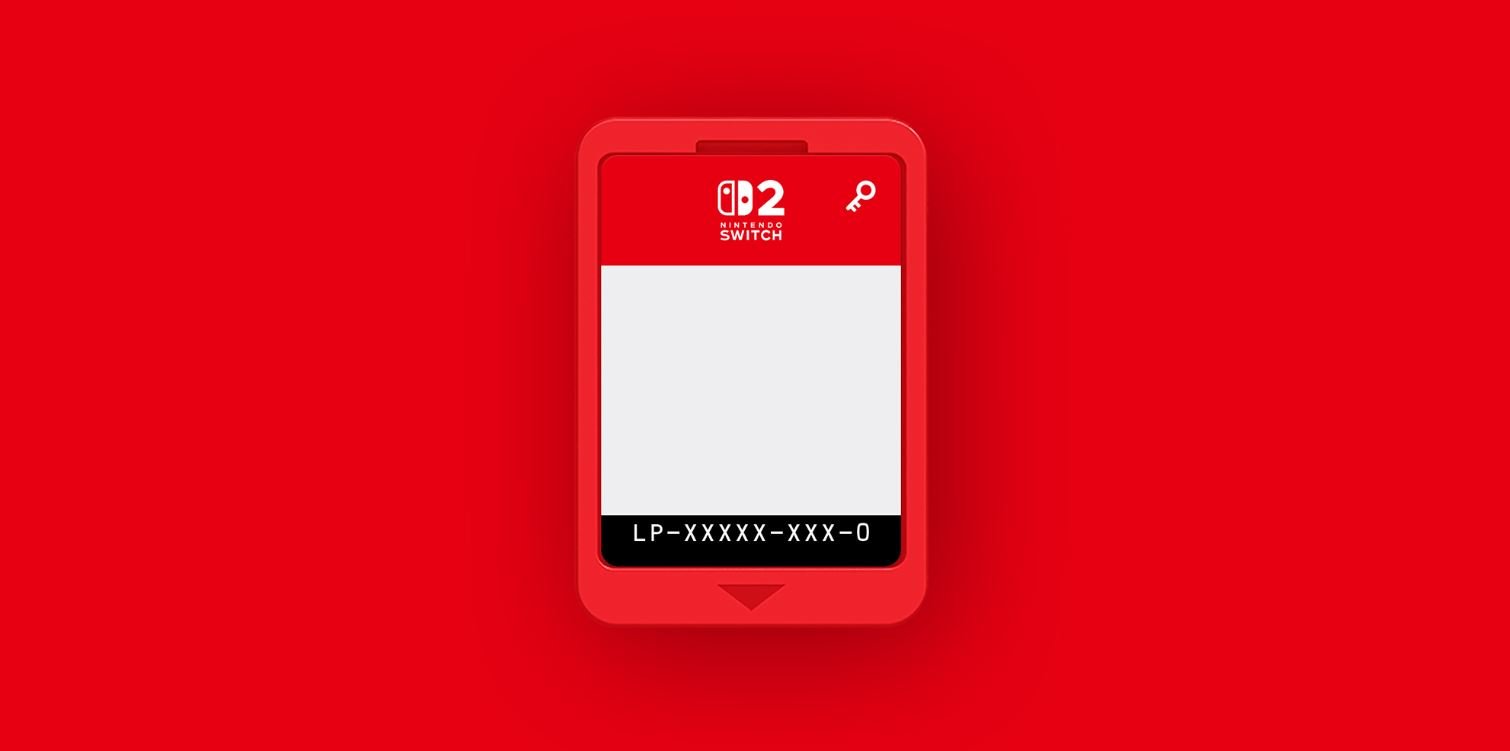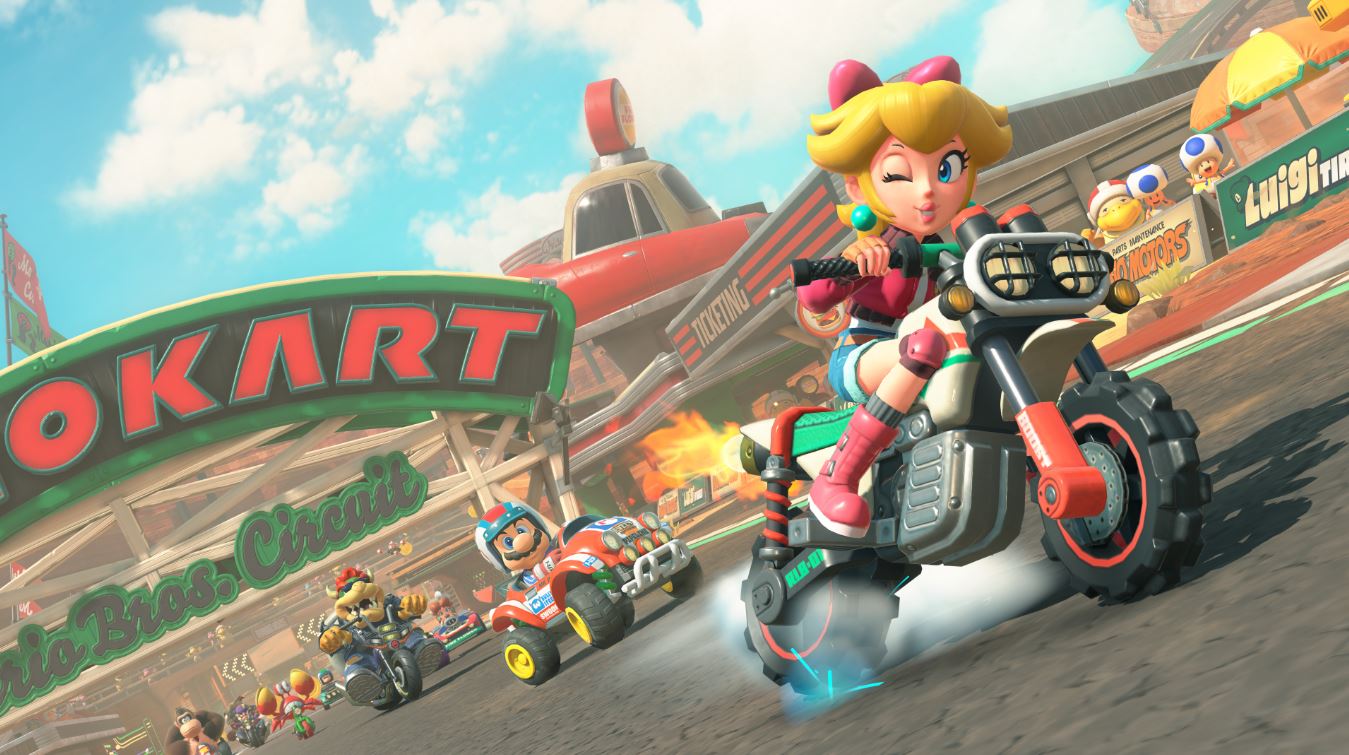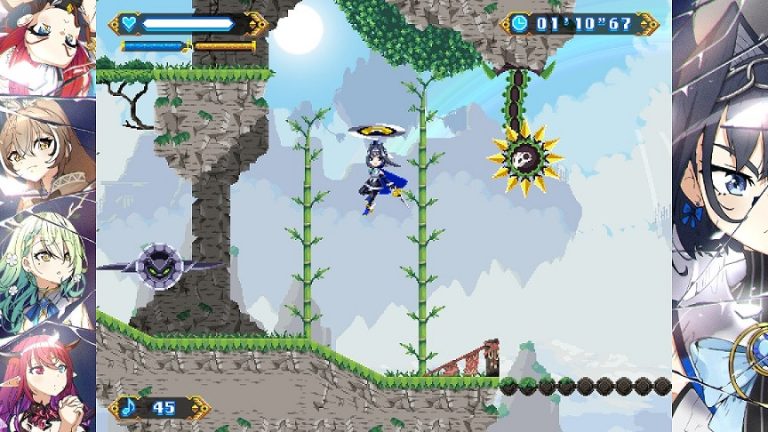The Switch 2’s Game-Key Cards, which store a digital license for downloading a game instead of the software itself, have been the target of much criticism ever since Nintendo first announced them. With consumers feeling more strongly about the need for physical media and game preservation than ever, it doesn’t come as a surprise that recent decisions by Nintendo have been controversial. However, composer and former Capcom developer Masakazu Sugimori recently stood in Nintendo’s defense, suggesting that a lot of what the company is doing is in fact meant to “protect the game and digital entertainment industries as a whole.”
In an X post from September 9, Sugimori says that one point of criticism he considers legitimate when it comes to Game-Key Cards is they can ultimately lead to a game you rightfully purchased becoming unplayable at the publisher’s discretion. At the same time, he flips the argument over, commenting, “But can non-digital goods be used forever? For the most part, no. Physical things have a lifespan, and they eventually break. Digital goods, on the other hand, don’t have a lifespan.”

This lack of a natural lifespan is, in Sugimori’s opinion, a key factor behind what Nintendo is doing. He offers a breakdown of his reasoning for the company’s recent decisions, including key cards and price hikes (i.e. Mario Kart World’s controversial $80 USD price tag).
Key cards: Preventing piracy, reducing the risk of carrying unsold stock
Raising game prices: Amidst rising costs, Nintendo took the lead in raising prices so other struggling game companies could follow
Cutting online services for past hardware: This sets a ‘lifespan.’ By doing this, it becomes easier for each game company to re-release their games on new hardware. In other words, it creates the job of “porting.”
While acknowledging that his interpretation may be a bit idealistic, Sugimori is, in principle, sympathetic to Nintendo. He considers it very unlikely that Nintendo is acting out of greed, given the company’s “insane” cash reserves. Instead, he suggests Nintendo is, in its own way, acting to protect the games industry. “With Nintendo taking the lead, it becomes easier for other companies to follow suit and protect themselves, that’s a fact.”
Related article: Nintendo Switch 2 game-key cards not eligible for preservation by Japan’s National Diet Library, officials say






Capcom, “ we are not greed. Release on game key card costing $0.5 on code and pricing original that we can earn 80% of profit and 20% Nintendo share. Good price to scam customers.”
Protect the industry lmfao XD. Piracy protects them from people who wouldn’t have bought the game in the first place. And then saying that total control is a good thing so they close off your access to resell you a port. This is so bad its comical. Glad he’s an ex-dev and isnt making decisions. Saying that Nintendo isnt greedy because they raised prices while holding major cash reserves is the definition of greed. Guy is a walking contradiction.
I am an avid digital buyer, but this guy is insane if he thinks digital media lasts longer than physical. Just look at the last few console generations.
I can still buy an NES game at a resale shop. But a 3DS eShop title? Nope, gone forever. What an insane take.
Oh really? I have 3 switches in my house for us. I can’t have all 3 up and running at the same time because only 2 switches can be linked and sharing game cards at once. And when my son was the last one to play a game and he leaves his switch uncharged, no one else can play the game I payed for and is already downloaded on the other console.
It makes a lot of sense… if you believe that video games exist to make profits for corporations. If you think that games have a purpose beyond that, however… it sounds like apologia.
Such words don’t carry much meaning when Nintendon’t has done nothing but hurt the industry and it’s fans for over a decade.
“Here at Nintendo, we’re protecting games and video gaming by refusing to sell you games you get to own, creating hardware we can brick out of the blue on you for no reason at all, making you pay more for less game, and sabotaging game preservation so we can force you to rebuy your entire library every five years. Because we care! “
While I personally agree that the digital services lack a lifespan that physical games do, there is still the fact that, unless you seek unconventional means to preserve them in time, companies can remove their content at any point in time before you get a chance to own it. Fire Emblem’s English translation getting removed from the eShop for example should’ve had the opposite move from the start. The precedent this sets is the reason why those who preserve games have to seek these wilder means of preserving these games on their own terms
That’s BS buying into the propaganda. Piracy isn’t a threat to the industry. They make record profits every year. The biggest threat to the industry is greed. There’s a reason indie games are more successful than AAA companies.
Absolutely insane. Nintendo is ruining gaming by doing all this. Lets create the job of porting by making our old stuff obsolete. I hope this dude doesnt work in the games anymore
Bullshit! Digital will be useless once they cut internet support. Physical is 100% better. You must be doing something wrong if your physical copies stop working.
Digital games dont have a lifespan? Tell that to overwatch 1 and the crew fans.
What a dumb take. Keycards are just as “physical” as cards with the game on them. Subject to the same wear and tear..physical components are needed to maintain a digital space as well.
A CD or cartridge is going to last much longer than a consoles download servers once a company gets tired of paying for it’s upkeep… Can’t even own your product you purchased with your own money without people in the industry gas lighting you into claiming their inferior offering is better for you the consumer, while also making you spend more money.
This is DISGUSTING…..
Physical doesnt take space on the console, digital goods require space. Sometimes space you dont have especially due to limitations. When space is endless, digital goods make more sense. Aside from things like only online going offline ( ie some mmos that have gone down or for example the 3ds store?)
I used to love Nintendo, but this entire last generation they have become radically anti-consumer. This dude doesn’t know a thing and is spouting complete BS. The current iteration of Nintendo is greedy, anti-consumer, anti-competetive, and would rather restrict it’s users beyond measure to save a few pennies.
I gave Nintendo a shot with the Switch 1, but going forward I will go with PC and the PC handhelds for my kids. I used to love Nintendo, but the innovation is gone and is replaced with greed and lawsuits. Minus their first party games, I can find the others at a cheaper price point for PC. I feel like Nintendo will eventually go the way of Sega and just be a developer at this rate.
How about $80 per game, isn’t that greed? Make Mario Kart similar games at $25 and then protect the industry as much as you please.
It’s called planned obselesence and it should be outlawed
Not about greedy? Have you seen the prices!? Games re-re-released cost 50% more than their re-releases with no extra content! If Devs argue with that, it’s only because they want a cut of the money. You can Kiss my a$$ first.
TL/VB (too long/very boring)
It actually is about greed.
I’d say owning 3 Switches is the big problem here
Digital media does have a lifespan… If you lose the file or your server gets corrupted or a fire happens in your cloud storage room all that can still be lost as well… 85% of cd’s and hard drives older than 20 years are just junk now and have lost their data completely. Also its about possesion… Physical media means i acually own the disk…. A download means I got nothing for my money according to the law…. All it gives me is access to a game server not ownership of a copy and I dont get control of the acess to the server so ehat are you paying for? You get nothing. Physical media for games with an offline mode is nice too because it works when even the power is out and you have no internet if you just charge it or have a generator. Digital media does have a lifespan and people get a sensation out of ownership of material posessions that they dont get from buying access to a download. It has nothing to do with security and is more about profits. It is much cheaper for them to make a server room than produce or ship the games in physical form and they found out they can keep it the same price and addicts will still pay for it…. Your paying the physical copy cost still but not getting the disk… I think if you are going to force digital copies you should sell them for no more than $10-$20 cuz its hardly worth it. People will pay $60-$80 for a physical copy but i wouldnt be interested in a digital one for less than $20
Just stop using Nintendo altogether. You can buy a lot of the games they have on other consoles or PC for a better price. The price gauging is ridiculous. The only way to get Nintendo to make the prices reasonable again is by not supporting the high price. To be honest a lot of the last few first party games they made were mid. If you still want physical media for game go with playstion or Xbox. If you want a game with the ability to use it on a handheld go with PC. Otherwise Nintendo will set a bad standard and lock everyone out of gaming unless you are extremely wealthy. Besides if a game is digital it should not be more expensive than a digital copy. They should have fair market value but should never be over $60 including dlc, because they are not being burned onto a physical media and using normal means of markets.
For those who are fooled, too young, ignorant or simply don’t see through the decades of lies and bullshiet:
1) It was never about battling piracy. That was all an intentional and planned agenda of brainwashing, nonsense and lies for many decades, which also has been refuted plenty by scientific studies.
Since nearly all MSM and “normie” media is controlled, it’s thus pure censorship and control that these studies and voices get buried and not mentioned.
heise(.)de/news/Auswirkungen-von-Raubkopien-EU-Kommission-unterdrueckt-Piraterie-Studie-3837330(.)html
(remove the brackets).
2) This has been plain obvious for three decades, because majority of pirates never had the intention to buy the game in the first place (for many reasons as “just trying it out”, or lack of money. The argument that every pirated copy is a loss, is thus totally nonsense.
It also shows the difference between theft and piracy.
3) The main purpose is to fully abolish private ownership aka the second hand market, as execs/CEO from the industry have told quite a few times
gamesindustry(.)biz/the-real-cost-of-used-games
(remove the brackets).
And this is easy to understand , since people selling their used games, will use the received money to buy new games;
they had the intention to buy from the very beginning. It’s a circulatory loop (which the corpos want to fully abolish)
So 1 bought copy of a game on a disc, will be sold to e.g. 5 different other people.
That would be 5 potential buyers (who had the money and intention), who instead of buying 5 new copies, only bought 1 shared copy of a game; thus 5 REAL loses for the publishers/developers.
4) Another example was a major game cracking group back in the 2010 who did a test: they stopped cracking games of major and minor game publishers for a whole year. Afterwards they compared the short- and long-term effects, sales etc of multiple games.
Result: Basically no changes in revenue, profit, sales at all after a year.
5) Another huge study, officially done 2015 by the European Union (professionals) called “Estimating displacement rates
of copyrighted content in the EU”
cdn.netzpolitik.org/wp-upload/2017/09/displacement_study.pdf
The multiple conclusions on 300 pages shed truth about willingness to pay, sales development, transactions etc. especially the one on page 164+.
“[…] For music, books and games the fact that one half to two thirds of the respondents would have been willing to
pay the market price or higher indicates that price is not a factor that could help explain piracy for those categories.
[…] Overall, the price is one factor that helps explain the piracy of films and TV-series, but the price does not help explain the piracy of music, e-books and games.”
Page 283 shows the “WILLINGNESS TO PAY DISTRIBUTIONS”. It shows the “coefficients of numbers of illegal transactions on legal
transactions” for films, TV-series, music, e-books and games, and it’s amount of legal downloads/transactions of physical media, streams, downloads, visits.
By comparing the number and fixed coefficients, it can be cleary seen how little video games are affected throughtout the willing and non-willing people to pay, by looking at the amount of illegal consumption.
6) A recent and obviously industry & corporate baked, pro-denuvo study, claims to show that the anti-tamper suite
– Denuvo DRM protects total revenue from piracy by a mean of 15% and a median of 20%.
– Piracy causes mean total revenue to decrease by 20% when Denuvo is cracked quickly.
– The characteristics of a game cannot explain its likelihood of being cracked.
However that study is absolute amateurish and uses nonsense comparisons for it’s argumentation as:
– Comparing games with denuvo against other denuvo games; everything derived from that is pure assumption.
That’s manipulative nonsense. The proper way would be comparing denuvo verus non-denuvo games.
– manipulatively and wrongly, games with huge differences in genre, sales numbers, production costs etc. have been compared.
This alone makes any legit conclusion, data comparisons not valid.
– Author didn’t sales data. Manipulatively the author is comparing purchased counts on platform steam versus amount of reviews on the platform steam and Metacritic scores, and then compares the dropoff of (amount) of reviews when the game is cracked.
Thats ridiculous nonsense to the maximum, using game reviews as a metric for data and comparison.
– There exists no predictable and reliable method to measuring the expected sales of any video game, music, movie etc.
The only one are pre-order numbers as it’s fixed, which have been not factored in this study.
Another claim which already stirs disbelief this study is manipulative and industry-baked nonsense, is uttered by the author himself:
– Piracy causes zero mean total revenue loss when Denuvo survives for 12 weeks or more.
Conclusively it means the long-term use of Denuvo isn’t useful for protecting game sales. If developers spend more money to have long DRM contracts (which they mostly do), they simply waste money using denuvo.
That’s how every major game publisher who uses denuvo is doing things. Denuvo got so good that for majority of video games using it, it’s only being cracked after few months or even a year. There are e.g. 0 games in 2024 which got their denuvo cracked. Hogwarts Legacy (Harry Potter) got got cracked only 5 monther afterwards, but still sold like hotcakes.
The authors claims, data and conclusions are pure assumptions made on nonsense data and comparisons; he has no real comparisons to work with.
6.1) Here is a valid comparison:
DRM free games on gog as Cyberpunk 2077 or The Witcher 3, outsold the DRM-version (steam, EGS etc.) by factor x2-3 and that despite steam being a multiple times more popular and known storefront.
The simple conclusion could be: The games are crap, not fun to play and not worth buying in the first place. People acquire the illegal/cracked version, play it for few hours and then deinstall it, making the realization that they were right and never would have bought the game copy in the first place.
Make good and fun games and people will buy, even if the game is distributed totally DRM-free.
Since publishers themselves have abolished game demos almost entirely, nowadays cracked games act as the game demos of the past.
Majority of MSM, general media and outlets, is centralized, globalist owned and controlled media.
IGN alone owns the biggest global video gaming network of Eurogamer, GamesIndustry.biz, Rock Paper Shotgun and VG247. Then, shares in Outside Xbox, Digital Foundry, Nintendolife, PushSquare, Pure Xbox and Time Extension.
Kotaku, Gizmodo, PCWorld, Macworld, InfoWorld, CIO, and TechAdvisor are owned first by Yahoo, now Keleops.
People thus know that the vast majority of so called game journalist are in fact payed, corporate-baked game “urinalist”, and their reviews are manipulative and lies.
Youtubers and even small reviewers also care about clicks and money only.
Metacritic and especially rotten tomatoes have already been exposed manipulationg their review metrics years ago.
Nowadays, using cracked games, is simply a legit and honest way for potential buyers to look through the ocean of lies, brainwashing and manipulation.
7) E.g. the 2020 Crytek leak showed that publishers make losses paying for denuvo
www(.)dsogaming(.)com/news/crytek-has-paid-e140000-for-using-denuvo-in-crysis-remasted-for-one-year/
8) In fact, valid comparisons can be made by the people themselves.
Go to warez site and look at the torrent tracker and spreaders for various cracked games, packed by fitgirl (the biggest packing group). All of big major video games as Horizon Zero, Jedi Survivor, Warhammer Space Marine, Ghost of Tsushima etc. have been torrented 5 – 100k (thousand) times only. The average and median is in fact somwhere in the low 20 – 40k.
That’s basically nothing compared to the few millions in sales for those big major games.
9) Obviously: Centralized & controlled online digital storefronts as e.g. Steam, Sony/Microsofts/Apples etc. store are super easy to control.
They can even abolish price competition, ban the use of third-party keys, force overpriced 30 % fees, payment options and things like that as has been seen now for two decades.
10) On top of it full spying & surveillance through that storefront, the bans of game modifications (see Capcom) etc.
Censorship. Say something against ongoing agendas or world views and *pew pew*, the account and access is gone.
11) The last one: This is the “You will own nothing” agenda, by the global ruling elite/globalist (WEF is just one of many organizations), aka their mixture of the New World Order, 1984, communism and stakeholder capitalism.
Abolishment of all privaty property. Communism.
We all experienced 5 years of an obvious fake and orchestrated virus-plandemic.
Cognitive dissonance and ignorance won’t help.
The people who still own games on disc, are the real winners.
In this 1984-communism-New World Order, the global ruling elite creates through Agenda 2030 currently, “You will own nothing” is their slogan.
Controlled and centralized online distribution platforms or even worse: full communism through shiet as game subscription/streaming.
(The mainstream nonsense told about Karl Marx, who he was etc. is all made up bullshiet. He was part of whoever global elite running the world at that time and had big financial financiers in the millions.)
Majority of human history is pure lies and connected, by whoever/whatever runs the globe for millennia.
Another corrupt person in the pockets of those holding the bag of greed. Yes it IS about greed. If it wasn’t, Nintendo would provide *INDEFINITE*, guaranteed access to download servers. We all know how that went. Remember people, you DO NOT OWN digital-only goods, and you cannot trust any of these companies. And don’t get cute and say something stupid like “yOu dOn’T oWn pHySiCaL gAmEs either, just the license”.
Never will I buy any digital game or key card at full price or evan over 5$ if I can’t physically own it where i can have it to play for my grand kids one day as I collect every game I ever bought as a kid. Every one of thows “key cards” will be in a landfill in 25 -40 years ehen they shut dowen the servers physical game you owen will still be in collections
What a moronic take, I hope Sugimoris jaw isnt still sore from sucking up to Nintendo so hard.
This is the same company that has already shit down virtually every digital storefront they have ever launched.
Active game dev here, this is not how most of us feel about the direction the industry is going. It’s horrifying to see the dystopian takes the massive publishers have on what videogames should and shouldn’t be, prioritizing their profit above all else and trying to gaslight everyone into believing their solutions are the best or only solutions to the woes of the industry.. Woes of their making i should add. If you want games like Silksong, Expedition 33 and others like them to flourish and set the example for the rest of the games industry, please vote with your wallets.
If even one word of this statement from Sugumori were true, then Nintendo would simply abandon physical games entirely. The fact that they are pushing this is due to nothing more than them wanting to pretend they still give a crap about people that want a market for physical games, while preventing people from reselling games, and forcing people to pay their never dropping digital prices.
Well, at least he’s not like the Sony guy who told people to get a second job to pay for the console…
I want to share my thoughts: Scalping and pirating old Nintendo games (3DS and before) to save old games from vanishing is one thing (and noble), but scalping and pirating from Switch and Switch 2 out of laziness is another.
To everyone in this comment section who is angry at Nintendo, let me ask this: What is Nintendo supposed to do with people who gleefully scalp and pirating Switch and Switch 2 games without remorse to avoid having to pay? So far Key Cards IS lowering scalping and pirating on the SHORT-term. The real problem is that Key Cards will not work LONG-Term once online goes away.
What do you all recommend Nintendo do to counter scalping and piracy of Switch Games instead that works both short-term and long-term?
Haha Oh Man they are protecting the industry by over inflating Prices, oh once AI hits they will truly learn that no one forgives & forgets their Greed as they die hahaha 🤣
Over Inflate Games by over 5x while digital, once AI Arrives it’s gonna be the end for them 😂, reuse assets, animations, free engines yet it cost more hahaha 🤣
That man is a dangerously stupid individual.
I can plug the original Link’s Awakening and Metroid 2 into my original Gameboy and play it. Right now.
I bought Fantasy Life for the 3DS from the Nintendo Eshop, but it isn’t on my 3DS because I’d run out of room. I can never play that game again.
That’s the difference.